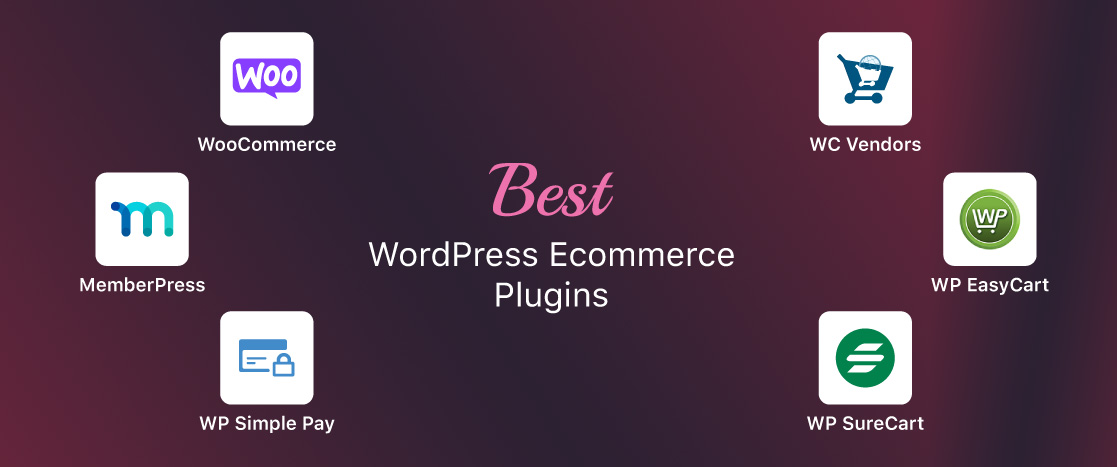
Ecommerce SEO Tools: The Ultimate Guide to Optimizing Your Online Store
- The Importance of Ecommerce SEO
- Why Ecommerce SEO Tools Matter
- Keyword Research: The Foundation of Ecommerce SEO
- On-Page SEO: Optimizing Your Product Pages
- Technical SEO: Ensuring Your Site is Search Engine Friendly
- Link Building: Boosting Your Site’s Authority
- Content Optimization: Enhancing Your Site’s Content for SEO
- Analytics and Reporting: Tracking and Improving Your SEO Performance
- Local SEO: Reaching Customers in Your Area
- Mobile SEO: Optimizing for the Mobile-First World
- Competitor Analysis: Staying Ahead of the Competition
- Conversion Rate Optimization: Turning Traffic into Sales
- Voice Search Optimization Tools
- Image Optimization Tools
- Conclusion
In today’s digital marketplace, the success of an online store largely depends on its visibility in search engine results. The competition is fierce, and only those who effectively leverage search engine optimization (SEO) will thrive. This is where Ecommerce SEO tools come into play. These tools are indispensable for optimizing your online store, enhancing visibility, driving traffic, and ultimately increasing sales. In this comprehensive guide, we will delve into the most effective Ecommerce SEO tools, explaining how they work, their benefits, and how you can use them to outperform your competition.
- The Importance of Ecommerce SEO
- Why Ecommerce SEO Tools Matter
- Keyword Research: The Foundation of Ecommerce SEO
- On-Page SEO: Optimizing Your Product Pages
- Technical SEO: Ensuring Your Site is Search Engine Friendly
- Link Building: Boosting Your Site’s Authority
- Content Optimization: Enhancing Your Site’s Content for SEO
- Analytics and Reporting: Tracking and Improving Your SEO Performance
- Local SEO: Reaching Customers in Your Area
- Mobile SEO: Optimizing for the Mobile-First World
- Competitor Analysis: Staying Ahead of the Competition
- Conversion Rate Optimization: Turning Traffic into Sales
- Voice Search Optimization Tools
- Image Optimization Tools
- Conclusion
The Importance of Ecommerce SEO
Before we dive into the tools themselves, it’s crucial to understand why SEO is vital for ecommerce. Unlike brick-and-mortar stores, online businesses rely heavily on search engines to attract customers. Without proper SEO, even the most well-designed online store may remain invisible to potential buyers. SEO ensures that your store appears in relevant search results, attracts organic traffic, and converts visitors into customers. This process involves optimizing various aspects of your site, from keyword usage to site speed, all of which can be managed and improved with the right SEO tools.
Why Ecommerce SEO Tools Matter
Understanding the significance of ecommerce SEO tools is fundamental before exploring the specific tools themselves. In the competitive world of online retail, simply having a well-designed website and quality products is not enough. To succeed, your store must be visible to potential customers, and that’s where ecommerce SEO tools come into play.
Ecommerce SEO tools are indispensable because they enable you to streamline the complex and often time-consuming process of optimizing your online store for search engines. These tools offer a level of precision and efficiency that manual SEO efforts simply cannot match. By leveraging the power of these tools, you can automate repetitive tasks such as keyword research, site audits, and backlink tracking, allowing you to focus more on strategy and less on routine work.
One of the most significant advantages of using ecommerce SEO tools is the ability to gain valuable insights into your website’s performance. These tools provide you with detailed analytics, showing you exactly how your site is performing in search engine rankings, where your traffic is coming from, and which keywords are driving the most conversions. This data-driven approach allows you to make informed decisions, fine-tune your strategies, and continually improve your SEO efforts.
Moreover, ecommerce SEO tools help you stay ahead of the competition. In the ever-evolving digital marketplace, competitors are always looking for ways to outrank you and capture your market share. SEO tools allow you to monitor competitor activities, identify their strengths and weaknesses, and adjust your strategy accordingly. This proactive approach ensures that your online store remains competitive, attracting and retaining customers in a crowded marketplace.
Another crucial benefit of these tools is their ability to improve your search engine rankings, which is vital for driving organic traffic to your site. Higher rankings mean greater visibility, which directly translates into more potential customers discovering your products. Given that a significant portion of online traffic comes from organic search, improving your SEO can have a profound impact on your store’s bottom line.
In summary, ecommerce SEO tools are not just useful—they are essential for any online business looking to thrive. They save time, provide critical insights, help you stay competitive, and, most importantly, boost your visibility in search engine results. By integrating these tools into your SEO strategy, you can ensure that your online store reaches its full potential, attracting more visitors and converting them into loyal customers.
Keyword Research: The Foundation of Ecommerce SEO
Keywords are the backbone of any SEO strategy. They are the terms and phrases that potential customers type into search engines when looking for products or services. Effective keyword research allows you to understand what your customers are searching for and how to position your products accordingly.
- One of the most widely used tools for keyword research is Google Keyword Planner. This tool is invaluable for discovering new keywords related to your products and understanding the search volume and competition for each keyword. It provides insights into which keywords are likely to drive traffic to your store, enabling you to focus your efforts on high-value terms.
- Another powerful tool is Ahrefs, which offers in-depth keyword analysis and competitor research. Ahrefs allows you to see which keywords your competitors are ranking for, providing opportunities to target those keywords in your content strategy. SEMrush is another robust tool that not only offers keyword research but also allows you to analyze your competitors’ keywords and identify gaps in your own strategy.
- For those looking for a more user-friendly option, Ubersuggest is an excellent choice. It provides keyword suggestions, search volume data, and competitive analysis, all in a simple interface. By effectively using these tools, you can identify the most profitable keywords for your ecommerce store and incorporate them into your product descriptions, blog content, and meta tags.
On-Page SEO: Optimizing Your Product Pages
On-page SEO refers to the optimization of individual pages on your ecommerce site to rank higher in search results and attract more traffic. This includes optimizing elements such as meta tags, product descriptions, headings, and images.
- Yoast SEO is one of the best tools for on-page SEO, especially for WordPress-based ecommerce sites. It helps you optimize your content for specific keywords, ensuring that your meta tags, headings, and content are all aligned with your SEO goals. Yoast SEO also offers a readability analysis feature, which helps ensure that your content is easy to understand and engaging for your audience.
- For more comprehensive page analysis, Moz On-Page Grader is a great tool. It analyzes various on-page elements, providing recommendations for improvement. This tool is particularly useful for identifying issues that may be hindering your rankings, such as missing alt text for images or poorly structured headings.
- Another essential tool for on-page SEO is Screaming Frog SEO Spider. This tool crawls your website, identifying technical issues like broken links, duplicate content, and missing meta tags. By addressing these issues, you can improve your site’s overall SEO performance and provide a better user experience for your customers.
Optimizing your product pages with these tools not only improves your search engine rankings but also enhances the user experience, making it easier for customers to find and purchase your products.
Technical SEO: Ensuring Your Site is Search Engine Friendly
Technical SEO involves optimizing the technical aspects of your ecommerce site to ensure that search engines can crawl and index your pages effectively. This includes factors like site speed, mobile-friendliness, and security, all of which are critical for both SEO and user experience.
- Google Search Console is an indispensable tool for technical SEO. It allows you to monitor your site’s performance in Google search results, identify crawling issues, and receive alerts for any errors that may impact your SEO. Google Search Console also provides valuable insights into which keywords are driving traffic to your site and how your pages are performing.
- Site speed is a crucial factor in SEO, as slow-loading pages can lead to higher bounce rates and lower rankings. GTmetrix is a tool that helps you analyze your site’s speed and provides recommendations for improvement. It breaks down the factors affecting your page load time, such as image sizes and server response times, so you can address them effectively.
- For real-time performance monitoring, Pingdom is another excellent tool. It provides detailed reports on your site’s uptime and response times, helping you ensure that your site is always accessible and performs well under various conditions.
- If you need a more comprehensive website audit, DeepCrawl is a powerful tool that examines all aspects of your site’s technical SEO. It identifies issues such as duplicate content, broken links, and thin content, allowing you to fix these problems and improve your site’s SEO health.
By using these technical SEO tools, you can ensure that your ecommerce site is fully optimized for search engines, leading to better rankings, more traffic, and ultimately, higher sales.
Link Building: Boosting Your Site’s Authority
Link building is a critical component of SEO that involves acquiring backlinks from other websites. These backlinks act as votes of confidence for your site, signaling to search engines that your content is valuable and trustworthy. The more high-quality backlinks you have, the higher your site is likely to rank in search results.
- Ahrefs is one of the top tools for link building. Its Link Explorer feature allows you to analyze your backlink profile, identify new linking opportunities, and track the performance of your link-building efforts. Ahrefs also helps you identify and disavow toxic backlinks that could harm your SEO.
- Another valuable tool for link building is Majestic SEO, which offers detailed insights into your site’s link profile, including metrics like Trust Flow and Citation Flow. These metrics help you assess the quality of your backlinks and prioritize which ones to pursue.
- For managing your link-building outreach campaigns, BuzzStream is an excellent tool. It helps you organize and track your outreach efforts, making it easier to build relationships with bloggers, influencers, and other potential link partners.
To create a successful link-building strategy, it’s important to focus on acquiring high-quality, relevant backlinks from authoritative sites in your niche. By using these tools, you can streamline your link-building process and significantly boost your site’s authority and rankings.
Content Optimization: Enhancing Your Site’s Content for SEO
Content is king in the world of SEO, and this is especially true for ecommerce. High-quality, optimized content not only attracts search engine traffic but also engages and converts visitors into customers. Whether it’s product descriptions, blog posts, or category pages, optimizing your content is essential for ecommerce success.
- Surfer SEO is a top content optimization tool that helps you structure your content for maximum SEO impact. It analyzes the top-ranking pages for your target keywords and provides recommendations on how to improve your content’s structure, keyword density, and overall relevance.
- Another great tool for content optimization is Clearscope. It uses AI to analyze your content and suggests improvements to make it more comprehensive and aligned with search intent. Clearscope helps ensure that your content is not only optimized for keywords but also provides real value to your readers.
- For those looking for a more advanced solution, MarketMuse offers AI-driven content planning and optimization. It helps you identify content gaps, plan new content, and optimize existing content to rank higher in search results.
Optimizing your content with these tools ensures that your ecommerce site not only ranks well but also provides valuable, engaging content that drives conversions. Regularly updating and refining your content is key to maintaining your site’s SEO performance over time.
Analytics and Reporting: Tracking and Improving Your SEO Performance
To continually improve your SEO efforts, it’s essential to track your performance and make data-driven decisions. Analytics and reporting tools help you monitor your site’s SEO metrics, identify areas for improvement, and adjust your strategy accordingly.
- Google Analytics is one of the most powerful tools for tracking your ecommerce site’s performance. It provides insights into your site’s traffic sources, user behavior, and conversion rates, allowing you to see what’s working and what needs improvement.
- For more comprehensive SEO performance tracking, SEMrush offers a robust SEO dashboard that consolidates all your SEO metrics in one place. It tracks your rankings, backlinks, and on-page SEO performance, providing detailed reports that help you fine-tune your strategy.
- To create custom SEO reports and visualize your data, Google Data Studio is an excellent tool. It allows you to pull data from various sources, including Google Analytics and Search Console, and create visually appealing reports that are easy to understand and share with your team.
By leveraging these analytics and reporting tools, you can gain a deeper understanding of your ecommerce site’s performance and make informed decisions to optimize your SEO strategy.
Local SEO: Reaching Customers in Your Area
While ecommerce is often associated with global reach, local SEO is also crucial, especially for businesses that operate both online and offline. Local SEO helps you connect with customers in your area and drive foot traffic to your physical store, in addition to online sales.
- Moz Local is a leading tool for managing your local business listings across various directories, ensuring that your information is consistent and accurate. This is essential for local SEO, as incorrect or inconsistent listings can harm your rankings.
- BrightLocal is another valuable tool for local SEO. It helps you monitor your local search performance, track local rankings, and manage your online reputation. BrightLocal also offers tools for generating and managing customer reviews, which are a key factor in local SEO.
- For businesses with multiple locations, Yext is an excellent tool for managing location data across various platforms, including Google My Business, Yelp, and Facebook. Yext ensures that your business information is accurate and up-to-date, helping you improve your local search visibility.
Implementing a local SEO strategy with these tools can help you reach more customers in your area and drive both online and offline sales.
Mobile SEO: Optimizing for the Mobile-First World
With the rise of mobile commerce, optimizing your ecommerce site for mobile devices is more important than ever. Mobile SEO ensures that your site is fast, user-friendly, and optimized for search engines on mobile devices.
Google Mobile-Friendly Test is a simple yet powerful tool that checks whether your site is mobile-friendly. It identifies issues that may prevent your site from performing well on mobile devices and provides recommendations for improvement.
For more detailed mobile performance analysis, PageSpeed Insights is an invaluable tool. It evaluates your site’s performance on both desktop and mobile devices, providing suggestions to improve page load times and user experience.
Another useful tool for mobile SEO is Test My Site, which focuses specifically on mobile page speed. It provides insights into how your site performs on mobile networks and offers recommendations for optimizing mobile page load times.
By optimizing your ecommerce site for mobile with these tools, you can improve your rankings, enhance user experience, and increase sales from mobile users.
Competitor Analysis: Staying Ahead of the Competition
In the competitive world of ecommerce, understanding your competitors’ strategies is key to staying ahead. Competitor analysis tools help you gain insights into your competitors’ SEO tactics, identify opportunities, and refine your own strategy.
- SpyFu is a powerful tool for tracking your competitors’ keywords, ad campaigns, and backlinks. It allows you to see what’s working for your competitors and apply those insights to your own SEO strategy.
- SimilarWeb is another excellent tool for competitor analysis. It provides detailed insights into your competitors’ traffic sources, audience behavior, and top-performing pages. This information can help you identify gaps in your own strategy and discover new opportunities.
- For a more comprehensive competitor analysis, Ahrefs offers a Competitor Gap Analysis feature. This tool identifies keywords and content opportunities that your competitors are capitalizing on, allowing you to target those areas and gain a competitive edge.
By regularly analyzing your competitors with these tools, you can stay ahead of the curve, adapt to changes in the market, and ensure that your ecommerce store remains competitive.
Conversion Rate Optimization: Turning Traffic into Sales
While driving traffic to your ecommerce site is important, converting that traffic into sales is the ultimate goal. Conversion rate optimization (CRO) involves improving your site’s user experience and making it easier for visitors to complete purchases.
- Optimizely is a top tool for CRO, offering A/B testing and personalization features that help you improve your site’s user experience. By testing different versions of your pages, you can identify which elements drive the most conversions and optimize your site accordingly.
- Hotjar is another valuable tool for CRO, providing heatmaps and session recordings that show how users interact with your site. This data helps you understand user behavior, identify pain points, and make informed decisions to improve your site’s usability.
- For landing page optimization, Unbounce is an excellent tool. It allows you to create and test custom landing pages that are designed to convert, making it easier to drive sales from your ecommerce site.
By integrating CRO with your SEO efforts, you can ensure that your site not only attracts traffic but also converts visitors into loyal customers.
Voice Search Optimization Tools
With the growing popularity of voice-activated devices, optimizing for voice search is becoming increasingly important for ecommerce businesses. Voice search optimization tools help you tailor your content to the specific needs of voice search users.
- AnswerThePublic is a unique tool that provides insights into the questions people are asking about your products, which can be used to optimize your content for voice search.
- SEMrush’s Voice Search Optimization tool offers data on voice search rankings, helping you understand how your store performs in voice search results.
- Moz also offers features for optimizing content specifically for voice search, focusing on natural language processing and long-tail keyword optimization.
To optimize for voice search, it’s essential to focus on natural language queries, use structured data, and ensure your content is concise and direct. By using these tools, you can position your ecommerce store to capture the growing number of consumers using voice search to find products online.
Image Optimization Tools
Images are a critical component of ecommerce, but they can also slow down your site if not properly optimized. Image optimization tools help you reduce file sizes without compromising quality, ensuring that your site loads quickly and performs well.
- TinyPNG is a popular tool for compressing images, reducing their size while maintaining quality.
- Kraken.io offers advanced image optimization features, including bulk image compression and API integration.
- ImageOptim is another tool that optimizes images for both web and mobile, ensuring fast load times across all devices.
Key factors in image optimization include reducing file sizes, using descriptive file names and alt text, and ensuring images are responsive. By optimizing your images, you can improve site speed, enhance user experience, and boost your SEO performance.
Conclusion
In conclusion, optimizing your ecommerce site with the right SEO tools is essential for success in today’s competitive online marketplace. From keyword research to technical SEO, content optimization, and conversion rate optimization, these tools provide the insights and capabilities needed to improve your site’s visibility, drive traffic, and increase sales.
Choosing the right tools for your ecommerce store depends on your specific needs and goals. Whether you’re looking to improve your keyword strategy, optimize your product pages, or enhance your mobile performance, there are reliable ecommerce SEO tools available to help you achieve your objectives.
SEO is an ongoing process that requires continuous monitoring, analysis, and adjustment. By staying up-to-date with the latest tools and best practices, you can ensure that your ecommerce store remains competitive and successful in the ever-evolving digital landscape.





